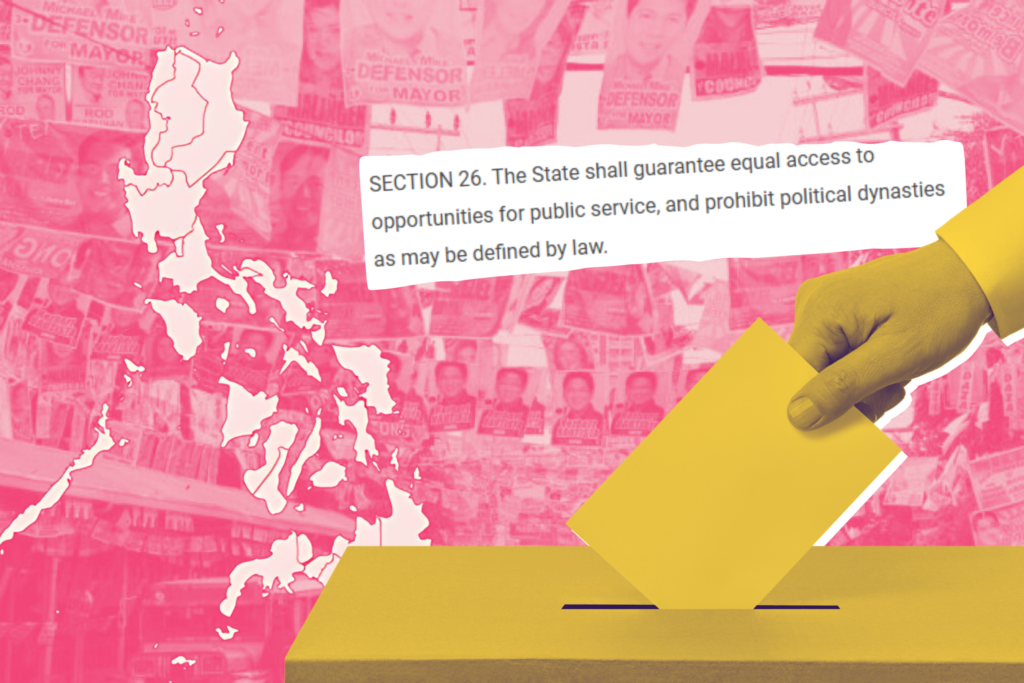PCIJ’s in-depth review maps political dynasties’ grip on power

CHEERS TO the Philippine Center for Investigative Journalism (PCIJ) for its three-part series mapping the pervasiveness of political dynasties in the Philippines and discussing their systemic impact on governance and development.
The reports, published from October 25-27, 2024, combine data analysis with critical insights that stress the urgent need for genuine political reforms.
- Meet the ‘obese’ political dynasties of the Philippines
- 8 in every 10 district reps belong to dynasties. More than half are reelectionists in 2025
- 5 ways Philippine dynasties are able to stay in power
The filing of certificates of candidacy from October 1 to 8 saw a parade of familiar surnames in politics, with members sealing their candidacy in Commission on Elections offices across the country for the 2025 midterm elections. Political clans typically send new family members to seek higher positions, reelection or swap seats with other family members.
The reports highlight the absence of legislation banning dynasties, enabling their members to perpetuate family agendas and entrench their power.
Earlier studies
Academics pioneered research on Philippine political dynasties. In 2021, Ronald Mendoza, Edsel Beja Jr., Victor Venida, and David Yap published “An Empirical Analysis of Political Dynasties in the 15th Philippine Congress.” The study identified the types of dynasties among legislators from 2001 to 2010, correlating political clans with poverty incidence.
Subsequent research by Mendoza and his colleagues introduced concepts like “thin” (sequential) and “fat” (simultaneous) dynasties holding a government post in 2016.
In 2019, Mendoza, along with Leonardo Jaminola III and Jurel Yap, coined the term “obese” political dynasties in their paper “From Fat to Obese: Political Dynasties after the 2019 Midterm Elections.”
PCIJ’s series builds upon existing research by not only cataloging existing dynasties and their candidates but also exploring how political dynasties impact transparency, exacerbate poverty, and foster corruption, all supported by expert insights.
Dynasties and poverty
The first report on October 25, authored by Carmela Fonbuena, spotlights “obese” dynasties—clans with four or more members simultaneously holding office. It identifies at least two dozen such dynasties vying for five or more seats in the upcoming May elections.
The report, through visuals, explores the links between dynastic control and persistent poverty, showing uneven development across the country. Rona Ann Caritos of the Legal Network for Truthful Elections also points out that areas under dynasties’ control have a higher risk of corruption because of the absence of checks and balances.
Systemic issues and reform challenges
The second report by Guinevere Latoza and Maujerie Miranda, published on October 26, indicates that members of political clans occupy 80 percent of district seats in the House, with over half seeking reelection in 2025.
A visual map provides an overview of the dynamics at play within the political landscape, showing how entrenched familial ties influence electoral outcomes.
In their third report, published on October 27, Latoza and Miranda detail strategies dynasties employ to remain in power by maximizing term limits, seeking higher positions, switching seats with relatives, expanding to new regions, managing intra-family rivalry, and exploiting the party-list system.
Despite the 1987 Constitution prohibiting political dynasties, the lack of implementing legislation has allowed this practice to flourish. A group of lawyers has asked the Supreme Court to clarify whether the constitution requires a law or not for enforcement. The challenge for the media lies in its capacity to raise public awareness about the long-term consequences of dynastic politics on the country’s development and democratic processes. Such awareness should help Filipino voters choose who they should keep out of office.
PCIJ‘s series also serves as an important resource for other civil society organizations searching for ways to improve Philippine politics to ensure more equitable and representative government.
Leave a Reply